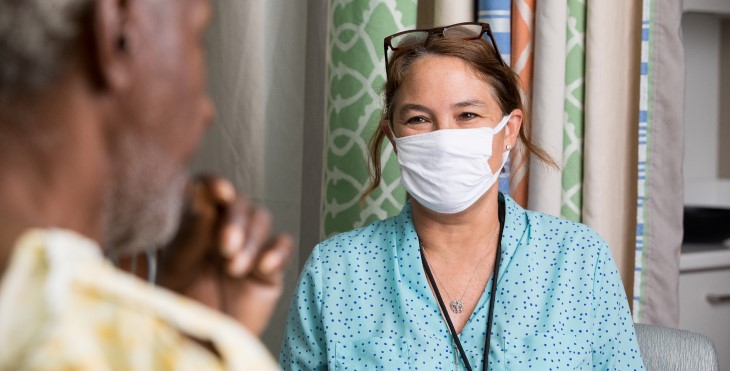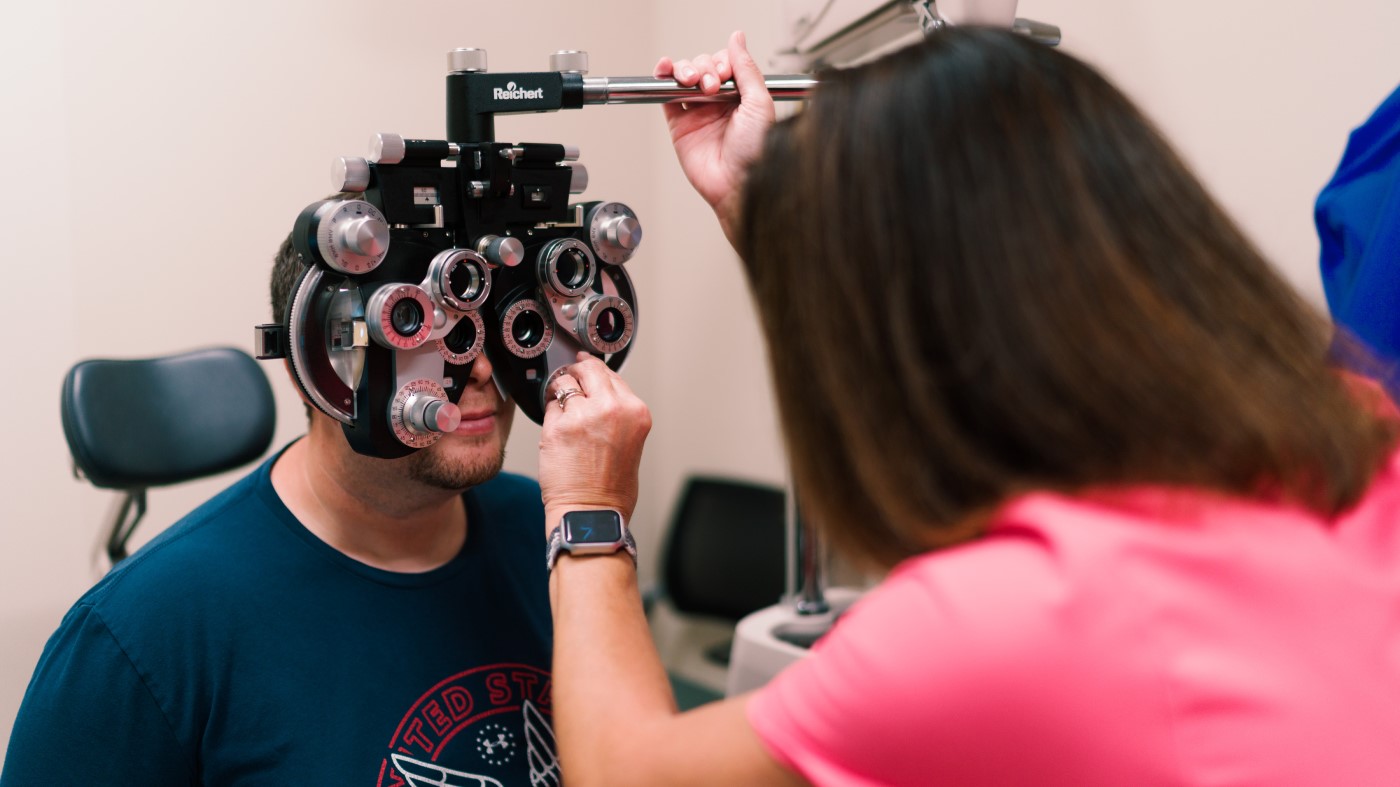This is an update to a blog that first appeared on VAntage Point in 2014.
At VA, we take pride in the high-quality care that we provide to Veterans. Ensuring they have access to that care is a critical component of the services we provide.
We focus on making it easier for Veterans to see their doctors and get to their medical appointments year after year. Not only does this result in better health for millions of America’s heroes, but it improves the working environment for employees across the nation.
Here are four ways that VA is working to improve access to care in 2020:
- Expanding and investing in telehealth.
We’re on track to set an agency record for telehealth care this year. Prior to COVID-19, VA had a robust telehealth system in place. Nearly two-thirds of our primary care and mental health providers had seen patients over video. Because of this, we were able to quickly ramp up our telehealth capabilities to meet increased demand.
In the first half of 2020, Veterans attended about 25,000 telehealth video appointments each day, a 1,000% increase from the previous year. As of July, we had already surpassed the number of telehealth encounters in 2019 by 7 million.
Telehealth is especially beneficial for Veterans who find it difficult to travel or those who live in rural areas far from care centers.
“VA is committed to offering Veterans the health care they deserve, whenever and wherever they need it,” said VA Secretary Robert Wilkie in November 2019.
- Tracking access to care data.
We’re keeping an eye on the numbers all the time, including maintaining a website that shows how quickly Veterans can expect to be seen, satisfaction with care, comparisons between facilities and more.
Our data-driven approach first started out by looking at wait times, but we’ve cast a wider net.
In a recent roundtable discussion, participants agreed that other important metrics to focus on include coordination and continuity of care, quality of care, compassion of care, and whether their needs were met in a timely manner.
“It’s fair to say that VHA is a leader in assuring timely access to care through a coordinated combination of virtual and in-person care,” said roundtable participant Susan Kirsh, M.D., VA’s acting assistant deputy under secretary for health for access to care.
- Offering transportation to VA facilities.
It can be hard for some Veterans to travel to their appointments due to age, illness, disability or location.
The Veterans Transportation Service (VTS) can provide transportation at little to no cost to many Veterans who cannot get to their appointments on their own.
VTS has established a network of transportation options in 47 states and Puerto Rico through joint efforts with VA’s Office of Rural Health and other organizations.
- Focusing on groups with increased access to care issues.
Veterans are a diverse group, and some have a harder time accessing care than others. We are working to meet the unique health care needs of several groups of Veterans through specific programs aimed at studying, understanding and improving their care.
Since women are the fastest growing Veteran group, we have created the Women Veterans Health Program that focuses on issues like comprehensive primary care, reproductive health and women’s health education. Designated women’s health providers coordinate care for female Veterans to ensure they receive equitable, timely care from a single primary care provider.
Other specialized programs have been developed for caregivers, combat Veterans, homeless Veterans, returning service members, rural Veterans, and seniors and aging Veterans.
Work at VA
Consider a career at a health care system that’s committed to providing easy access to patients.
- SEARCH for job openings near you.
- EXPLORE our access to care.
- LEARN more about the benefits of working for VA.
- FOLLOW VA Careers on Twitter, Facebook, Instagram, YouTube, LinkedIn and Glassdoor.
Topics in this story
More Stories
Whether it’s access to the great outdoors or a calmer pace in your everyday life, you can find it in rural VA communities around the country.
We offer some quick and easy steps to show you how to format a cover letter, and what information to include.
The eye care provided by ophthalmologists can make all the difference to our Veteran patients.






It all depends on your age apparently. After a certain age all they do is lie and mislead, waiting and HOPING for you to die. Hip and knee replacements are too expemsive unless you are “12” and have returned from Iraq or Afghanistan. You need to tell them that under Title 38 CFR you request to be sent out to the community for care.
I have not found any of the information about health care and alternative methods or assistance to transport me here in Memphis to be a joke.
In October 2019 I informed my new PCP of just three things on my first visit that:
a) I wish to have both of my hips replaced surgically;
b) That I still need an electric wheelchair;
c) That I suffer with BPPV diagnosed at the VAMC in Nashville and that I was prescribed and paid for by the VA for several years with Meclizine.
The female foreign American doctor told me that vertigo is temporary as she argued that I should not need the Meclizine. After apparently reading my medical records, I began to receive Meclizine in February of 2020.
I was scheduled to visit the PT for the rollator and wheelchair in March 2020.
Months later about July of 2020 I was told that I needed to have a more recent x-ray of my hips for surgery except this VAMC has never referred me since 2019 for an x-ray of anything.
I requested from the nurse to allow for the employees to set a telehealth appointment for my pain medications but all they continued to do was to call me on the phone which first was broken and second rarely used except periodically to read text. I have I told them a hearing loss in both ears.
My request for a wheelchair was denied in August 2020 because I refused to do physical therapy appointments even though I have had relatives to assist push me to come to the VAMC.
I have been waiting for my knees replacement since November 2019 and VA health keep letting me down. What’s this world class service mean that they always say when you call. I asked when will it start and they laugh a quietly because it doesn’t and probably never will.